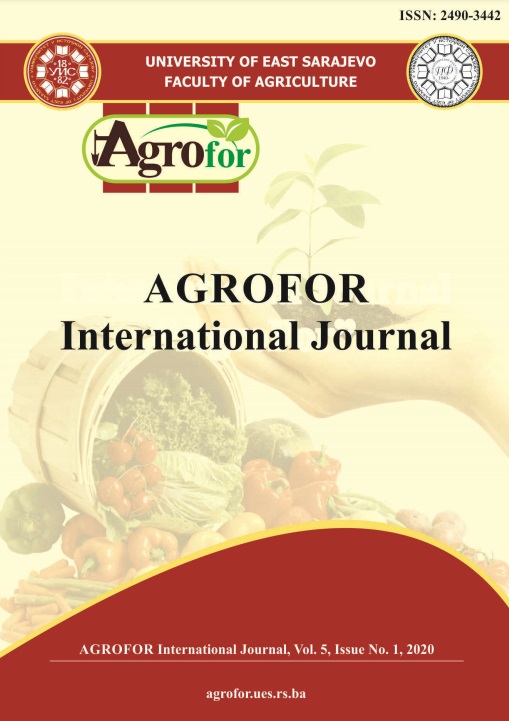EFFECTIVENESS OFINDIGENOUS KNOWLEDGE ON CONTROL PRACTICES OF SHEEP AND GOAT DISEASES AND PEST AMONG FARMERS IN IKOLE EKITI, EKITI STATE, NIGERIA
DOI:
https://doi.org/10.7251/AGRENG2001068OAbstract
The study attempts to investigate the level of access, use and effectiveness of indigenous knowledge practices in controlling diseases and pests in sheep and goats among goat and sheep farmers in Ikole-Ekiti, Ekiti State, Nigeria. Data were gathered through interviews scheduled on 90 goat and sheep farmers. The data were analyzed using descriptive statistics tools of frequencies, percentages and means to describe parameters such as age, sex, household size, educational qualification, and farm size. Pearson correlation coefficient was used to determine the relationship between the dependent variable and independent variables. The results revealed that the mean age of the respondents was 58 years and 63.3% of the goat and sheep farmers were females. The farmers in the study area had low contact with extension workers. The main sources of information were family members, friends and neighbours, and radio. Using sandpaper leaf for mange infection and palm oil for bloat was ranked highly effective. The constraint with the highest percentage was inadequate information of the technique used. Based on the result of the Pearson correlation, accessibility had a positive and significant relationship with effective usage of indigenous knowledge practices. Sequel to the findings of the study, it was recommended that agricultural extension services in Ekiti State should make extension agents available in rural areas to educate the farmers on various indigenous knowledge practices.

